Key benefits
- 100% online master's within 24 months
- Study anytime, anywhere, on any device
- Degree not required for admission, work experience considered
- Earn while you learn
- £6,000 total fees, option to pay per module
- Full academic support
According to a study by the Royal Society, demand for workers with specialist data skills like data scientists and data engineers has more than tripled over five years (+231%). As a result, there is a large and growing skills gap in this field, presenting ambitious individuals with opportunities for career success in well-paid job roles.
Research by Glassdoor, looking at salary, job satisfaction and job openings in 2019, ranked data scientists as having the number 1 job in the United States.
The 100% online MSc Computer Science with Big Data Analytics is designed to provide a new way for busy working professionals to gain in-demand skills and a qualification in this sought-after field. It is completely flexible and can be studied anytime, anywhere and on a wide range of devices.
Studied part-time, you can continue to work full-time, earn while you learn, and apply what you learn to your current role for career progression. With six starts a year, you’re not restricted by the traditional academic year and can begin your studies within weeks.
This master’s degree is designed both for ambitious individuals who are not from computer science or data analytics backgrounds and want to equip themselves for a new career in this area, as well as for individuals who currently work in the sector and are looking to accelerate their career with a high-quality qualification.
The programme is designed to build the key professional competencies and skills of a computer scientist. It also aims to provide a deep knowledge of the techniques and unique issues surrounding the emerging use of data for analytics, decision making and monitoring within real-world contexts.
It covers fundamental elements of data science and computer science, including:
This master’s is careers-focused and problem solving, legal, ethical and professional considerations are embedded throughout all of the modules. It includes a 45-credit research project, where you will work on a specialist topic with relevant supervision.
More than half of our students study part-time and as a result we have considerable expertise in flexible study. This completely online MSc Computer Science with Big Data Analytics programme has a flexible design enabling you to study at your own pace, on your own terms. There are flexible payment options and, for those that are eligible, there are postgraduate government loans to cover the full programme cost.
This MSc Computer Science with Data Analytics is industry-led and career-focused, reflecting the culture and capabilities of North Wales Management School and of Wrexham University. Our deep relationships with leading employers have fed into the programme content and have helped shape a master’s programme that is built for career enhancement across a wide range of sectors in the modern-day work environment. It is this approach that has seen us ranked in the top 10 UK universities for employability for part-time students in employment.
North Wales Management School online MScs are designed to be affordable, saving time and money. Tuition fees are calculated per eight-week module. You can enrol in and pay for each consecutive session as your studies progress. Payment is accepted through the online student portal and must meet the payment deadline.
This module develops the critical reading, thinking and writing techniques you will need throughout the taught programme of study. From effective literature searching, analysis and review, through fact-checking and conflict-resolution, to producing written reports, it perfects the knowledge and skills necessary to start your journey as an efficient researcher.
This module gives you a thorough grounding in the theories and application of computer algorithms, abstract data types, underlying data structures and their integration to produce efficient programs. It enables you to develop the knowledge and skills to be able to analyse problems and design, implement, and analyse effective algorithmic solutions.
This module explores the principles of big data analytics. It looks at how data is gathered, processed and analysed, and how data is converted into knowledge. You will explore big data applications and will learn how to responsibly design, build and maintain complex big data resources. You will develop critical awareness of the impact of current and emerging big data technologies and applications.
This module explores the fundamental concepts of collecting, analysing and visualising data. It is designed to develop you into a data analyst who can identify patterns and display information from data of several sources. You will be able to discover, analyse, visualise, and present data in meaningful ways – harnessing the power of data for creating new insights. You will gain practical skills using an open source software to apply data analysis and visualisation techniques to real-world data analytical problems.
This module is designed to give you an understanding of the role of database systems in information management, and the theoretical and practical issues that influence the design and implementation of relational database management systems. The module provides you with the skills required to create, maintain and interrogate a relational database management system using commercially available database software. It equips you to critically analyse database issues and recommend solutions in a multi-user relational database environment.
This module provides you with a 360 degree understanding of machine learning techniques, key concepts, methodology, and applications to real-world problems. It covers fundamental concepts in machine learning, curve fitting, lazy learning methods, artificial neural networks, linear models and kernel methods, ensemble methods and dimension reduction. You will have hands-on experience of how to apply techniques to solve engineering and business case studies. You will learn to link real-world problems to machine learning techniques, suggest the most suitable machine learning method, apply it using a software package and evaluate its performance.
In this module, you will identify, explore, and evaluate concepts of analysis and design and a range of traditional and contemporary methodologies to enable you to appreciate the nature of information and its role in the system’s engineering process.
It provides you with the knowledge to develop a professional approach to practice and evaluate the impact of systems design, development and implementation on society. It includes consideration of professional, ethical, legal, political, cultural and sustainability issues.
This module introduces the concepts of virtualisation and cloud computing, including the networking principles, algorithms and technologies that are used within the architecture of the Internet. By the end of this module, you will be able to: explain the different devices, software and protocols used within online environments; select approaches appropriate to the network stack level; and justify the choices made implementing physical and logical networks.
This module focuses on the identification and exploration of security risks, the application of risk control and risk management measures and regulations. You will gain an appreciation of security technology and a critical understanding of security policies, standards and practices as well as the legal, ethical, and professional issues in security management.
In this module you will develop the skills necessary to undertake a research project. These include how to conceive, structure and execute a research study, questionnaires and surveys, implementation, testing and statistical analysis. Also included is good practice for presenting your own research coherently in the form of an academic publication.
You will undertake a small research case-study, before producing a full proposal for your dissertation.
This module supports and aids you in carrying out an independent project allocated or chosen through consultation with programme team staff. The dissertation allows you to demonstrate mastery of a specific area of the subject. You will undertake a concentrated review of literature in a chosen subject area and apply knowledge and expertise gained during the taught element of the programme. The dissertation enables you to exhibit deep research and technical skills.
*To qualify for the Alumni discount online applicants must have achieved a Bachelor`s Honours degree with a minimum classification of 2:2 or above, and it must be awarded by Wrexham University.

100% Online and Flexible Learning

Career-Focused Programmes Designed for Real-World Skills

Internationally Recognised Qualifications

Renowned for Exceptional Teaching Quality